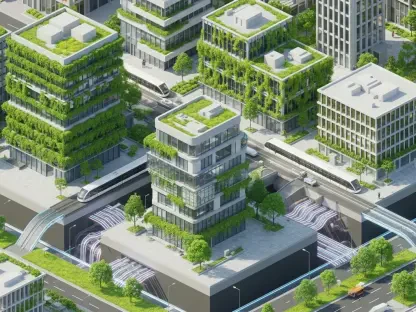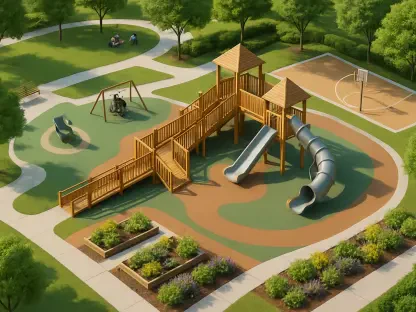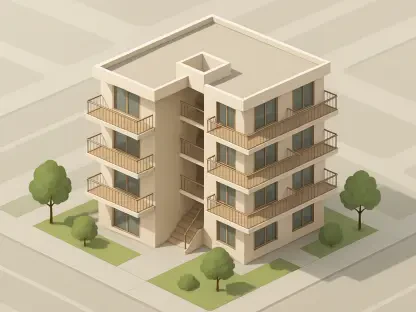The real estate market remains a dynamic sector, continuously adapting to a myriad of economic, technological, and societal changes. As we look ahead to 2025, there are several trends anticipated to significantly impact the landscape, bringing about notable shifts for investors, developers, and homebuyers alike. These trends encompass a range of areas including technology integration, sustainability, urbanization, and market-specific dynamics, all of which promise to shape the future trajectory of the real estate market. This comprehensive analysis delves into these anticipated trends, providing a detailed understanding of what lies ahead.
Increased Adoption of Smart Technology in Homes
One of the most notable trends expected to influence the real estate market by 2025 is the surge in the adoption of smart technology within homes. Today’s homebuyers are increasingly inclined to seek out properties equipped with advanced technological features that enhance convenience, efficiency, and security. This shift will see smart home integration becoming a standard offering in new developments. Automated lighting systems, voice-activated assistants like Amazon’s Alexa or Google Home, and sophisticated security systems capable of real-time monitoring are set to become commonplace.
In addition to convenience and security, energy efficiency within smart homes will be a crucial factor driving their appeal. Smart energy management systems, such as programmable thermostats and solar panels, are expected to gain widespread popularity. These systems not only help reduce energy consumption but also resonate with environmentally conscious buyers. Furthermore, the integration of the Internet of Things (IoT) in home automation will revolutionize how homeowners interact with their living spaces. IoT-enabled connectivity and control over various home appliances, lighting, and HVAC systems will become increasingly seamless, attracting tech-savvy buyers and investors aiming to future-proof their properties.
Growth of Sustainable and Green Real Estate
Parallel to the rise of smart homes is the significant growth of sustainable and green real estate. As environmental concerns take center stage, there is a growing demand for eco-friendly and energy-efficient homes. By 2025, net-zero buildings, which are designed to produce as much energy as they consume, will become highly desirable. This shift will see an increased use of sustainable and recycled materials in construction. Additionally, properties with green certifications, such as LEED and ENERGY STAR, will stand out in the market, attracting buyers and tenants prioritizing environmental responsibility.
Urbanization trends are also expected to shift, with secondary and tertiary markets gaining prominence as property costs in major metropolitan areas continue to rise. The growing interest in more affordable housing options outside expensive urban centers will be sustained by the remote work culture, which gained traction during the COVID-19 pandemic. This shift, driven by the need for cost-effective living solutions and the flexibility afforded by remote working, will spur the development of infrastructure in transportation, education, and healthcare within smaller cities, bolstering their appeal for residential and commercial investments.
Rise of Co-Living and Shared Spaces
The rise of co-living and shared living spaces is another trend set to reshape urban residential real estate. Affordability challenges, especially among younger demographics like millennials and Gen Z, will drive the popularity of shared living arrangements. Co-living communities providing fully furnished and flexible communal living environments will particularly attract young professionals looking for cost-effective and social living setups. Moreover, modern developments focusing on shared amenities such as gyms, coworking spaces, and communal kitchens are set to become more prevalent. The build-to-rent (BTR) sector, which involves developing properties exclusively for rental purposes, is expected to draw investors eager to capitalize on the rising demand for affordable rental housing.
Technological Disruption in Real Estate Transactions
Technological disruption within real estate transactions is poised to continue, with innovation and digitization streamlining processes and enhancing transparency. Blockchain technology will simplify property transactions by providing secure and tamper-proof records, improving the overall reliability and speed of transactions. Virtual property tours, facilitated by virtual and augmented reality (VR/AR), will make property viewings more accessible and immersive for prospective buyers. These technological advancements will enhance the buying, selling, and renting experience, making it more efficient and user-friendly.
Artificial intelligence (AI) will play a critical role in transforming the industry. AI-powered tools will improve property valuation accuracy, predictive analytics, and customer support services. These advancements will not only create a faster and more reliable real estate market but will also benefit both buyers and sellers. The incorporation of AI will usher in an era where data-driven insights and personalized service enhance decision-making and the overall customer experience.
Strong Demand for Multifamily Housing
Despite the burgeoning technological advancements, the demand for multifamily housing is expected to remain robust. High home prices and shifting demographic preferences will continue to drive the rental market. Urban redevelopment efforts will see multifamily developments incorporating mixed-use spaces that combine residential, retail, and work environments. Properties featuring amenities such as coworking spaces, gyms, and pet-friendly features will distinguish themselves in the competitive rental market. Investors are likely to favor multifamily developments due to their potential for steady rental income and long-term growth prospects.
Economic Factors Influencing the Market
Economic factors will also play a significant role in shaping the real estate landscape in 2025. Rising interest rates and financial uncertainty might deter potential buyers, shifting their preference towards renting instead. Certain regions could experience a cooling in property prices due to increased borrowing costs. In such an environment, investors and buyers with substantial cash reserves are expected to hold an advantageous position, potentially dominating the market. This financial dynamic underscores the importance of strategic planning and sound financial management in navigating the changing market conditions.
Conclusion
The real estate market is always evolving, constantly adjusting to a variety of economic, technological, and societal influences. As we look ahead to 2025, several emerging trends are poised to significantly impact the industry, bringing about considerable changes for investors, developers, and homebuyers alike. These trends span diverse areas such as technology integration, sustainability, urbanization, and market-specific dynamics, each playing a crucial role in shaping the future direction of real estate.
Technological advancements are expected to revolutionize property management and transactions, making operations more efficient and user-friendly. Emphasizing sustainability will drive the development of eco-friendly buildings and communities, reflecting a growing demand for green living. Urbanization trends will continue to fuel the growth of metropolitan areas, while shifts in market dynamics will reflect the evolving needs and preferences of consumers. This comprehensive analysis explores these anticipated trends in detail, offering valuable insights into the future of the real estate market.









